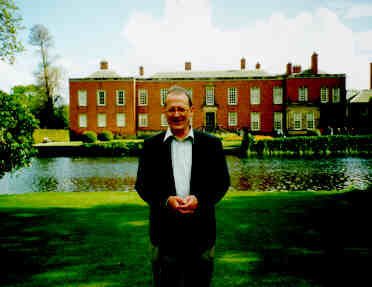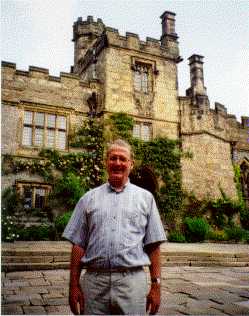


My interest in Elizabeth Gaskell began when I wrote my MA thesis on her some thirty years ago. At that time she was still relatively disregarded: since then the work of pioneering scholars like Arthur Pollard, John Chapple and J. G. Sharps, followed by others such as Edgar Wright, Angus Easson and Jenny Uglow has ensured that she is recognised in her own right as one of the most interesting literary personalities of her time, while the work of feminist critics on both sides of the Atlantic has allowed her to take her place alongside the Brontë sisters and George Eliot amongst that group of novelists who tell us so much about women's experience in the Victorian period. My own contribution to these developments has been modest, although I hope that my paperback editions of The Life of Charlotte Brontë (Penguin, 1975), Ruth (World's Classics, 1985) and Mary Barton (Everyman, 1996) have done something to make her work more readily accessible.
My academic career has been spent almost exclusively in the English Department at the University of Manchester, where I am Senior Lecturer in English Literature, specialising in English and American literature of the nineteenth and early twentieth centuries. When I am not reading Gaskell, I am reading Dickens, Hardy and Henry James. In 1986, however, I returned from a year spent in the United States at the University of Missouri-Columbia to find that an Elizabeth Gaskell Society had been established during my absence, and I was asked by the then President of the Society, Professor Arthur Pollard, if I would accept the post of Editor of its proposed new journal. I was Editor of The Gaskell Society Journal from then until this year (1997), having seen eleven annual issues through the press. At the time of writing I am handing on the torch to a new editor, Mrs Jo Pryke, in order to work with Professor Chapple on a supplementary volume of nearly three hundred Gaskell letters which have surfaced since the publication of the monumental Pollard/Chapple edition The Letters of Mrs Gaskell (Manchester University Press, 1966). Elizabeth Gaskell was one of the great letter writers of her time: in turns lively, serious, funny, thoughtful, her letters express her true humanity of mind.
My work as editor of the Gaskell Society Journal has been done in the city to which Elizabeth Gaskell came, as a young bride, in 1832: those of us who know the Manchester and Cheshire area always feel that we have a certain proprietorship where she is concerned. Above all she is a novelist of people and of places, and Manchester and the north-west of England is the region that she knew. At the same time working on the journal has brought me in touch with Gaskell scholars both established and emerging from all parts of the globe. In particular I should mention my friend and colleague Professor Francesco Marroni, and his team of research students at the G. D'Annunzio' University at Pescara in Italy. Professor Marroni is the author of a distinguished study of Gaskell in his own language, and it has been my privilege on a number of occasions to give papers and lectures in his department. I have also greatly valued my contact with Mitsuharu Matsuoka of Nagoya University in Japan. Since the days of A Stanton Whitfield there has been a tradition of Gaskell scholarship in Japan, and there is a separate Elizabeth Gaskell Society of Japan. The work that Mitsu has done in establishing this home page on the Internet has been an invaluable service to Gaskell enthusiasts all over the world. Elizabeth Gaskell's own love of continental travel gives her work a cosmopolitan flavour that can surprise those who know her only from her English urban and provincial fiction: I like to think that she would have been intrigued by the interest that is now taken in her world-wide, and that in her understated way she would have been pleased by it.
I extend greetings to Gaskell scholars and enthusiasts wherever they may be.
